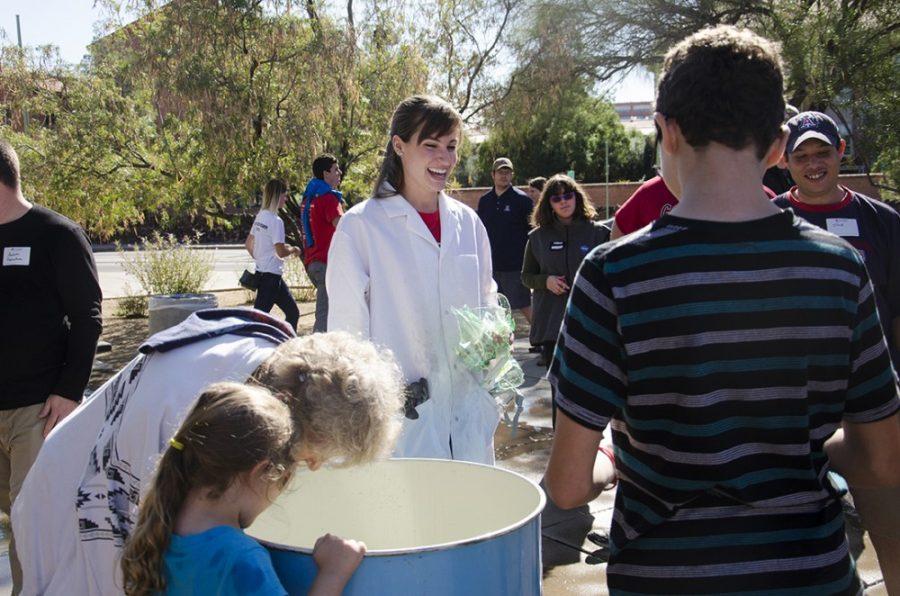Sixty students from the Tucson community came to the UA on Saturday to attend the Saturday Science Academy and lick halite — or sea salt — play with soil and view microbes, with the ultimate aim of explorng the expansive field of the geological sciences.
The SSA is an annual outreach event run by the department of geosciences, said Gary Trubl, a graduate student in the department of soil, water and environmental science and appointed director of SSA. Trubl combined his interests in both geobiology and astrobiology to shake up the standard geology outreach events by connecting geological concepts to life.
“This year’s theme is called ‘A Geologic Perspective on Life,’” said Phil Stokes, a graduate student, academic adviser in the department of geosciences and co-founder of SSA. “The goal was to think about what the first life on Earth was like, how it has changed over time, what life is like now and where is it going to be in the future, whether that be in our solar system or in others.”
The overarching goal of SSA is to find better ways to engage the community in the sciences, particularly geology, Stokes said. In addition, SSA encourages students in under-served Tucson schools by providing activities that they may not otherwise be exposed to in the classroom, Stokes said.
“The event began with keynote speaker Marc Sbar, a professor in geosciences, introducing the students to the steps to become a geoscientist and the many diverse questions that they have,” Trubl said.
Then, the students were broken up into smaller groups, Trubl said. This year, Trubl said there were sessions put on by the Microbiology Club; Soil, Water and Environmental Science Club; Astronomy Club; and other faculty members and graduate students. The final event of the day was a volcanic eruption, Trubl added.
At one of the sessions, geosciences graduate student Shaunna Morrison displayed a mineral exhibition to highlight the diversity of minerals in Arizona and across the globe.
“It is really important that kids learn about science and math,” Morrison said. “This is a nice way to make it fun for them, especially when they are licking the halite.”
Ava Bemer, a seventh-grade teacher at Booth-Fickett Math and Science Magnet School, said the activities at the outreach event were very important to her students. SSA changes their attitudes about learning science and other academic fields, which gives value to their education, Bemer said.
“Over the past six years, we have connected to about 600 people, including kids and parents,” Stokes said. “That is 600 people in the community that we have connected with that maybe have never been to the university. They may have also never had the chance to meet graduate students and see what a career in science is like.”
Stokes said the SSA outreach event is a big step towards getting people interested in science, improving diversity in science and contributing to scientific literacy to encourage critical thinking about making better-informed decisions in daily life.
“There are lots of areas [of science] where you can’t physically touch something, and what you can, it is not necessarily that interesting,” Morrison said. “We get the students to think about the uses of minerals in society, which is neat for them to make this connection.”
_______________
Follow John McMullen on Twitter.









